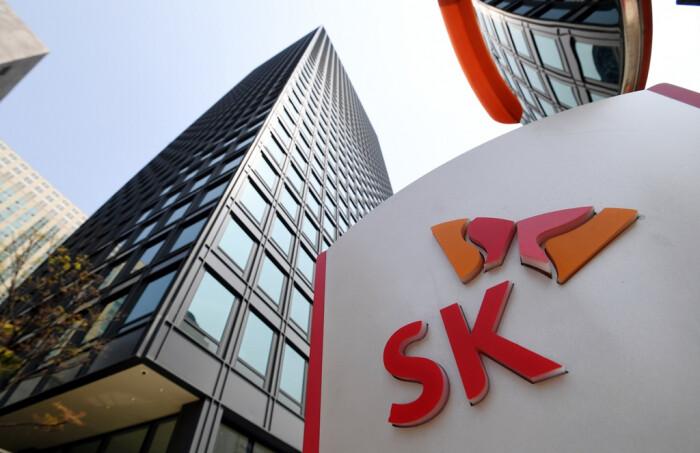
ULSAN, South Korea – Ulsan, a city historically known as South Korea's industrial powerhouse, is set to undergo a significant transformation into a cutting-edge artificial intelligence (AI) data hub. A monumental $7 billion (approximately 9.5 trillion KRW) joint venture between Amazon Web Services (AWS), the world's leading cloud provider, and SK Group, a prominent South Korean conglomerate, will see the establishment of a massive AI-exclusive data center in Ulsan's Nam-gu Hwangseong-dong area. This ambitious project marks a pivotal moment for both regional development and the advancement of AI infrastructure in South Korea.
The collaboration, with AWS making a substantial direct investment of $4 billion (around 5.47 trillion KRW), underscores the strategic importance of this venture. Ulsan's proactive and flexible administrative support has been widely cited as the decisive factor in securing this high-profile investment. The city's agile decision-making processes and seamless inter-departmental cooperation reportedly resonated strongly with both AWS and SK, given the rapid pace of technological change and demand growth inherent in the AI industry.
Project Scope and Timeline
An official Memorandum of Understanding (MOU) between SK and Ulsan City is slated for signing around June 20. Construction will then commence on a 36,000 square meter (approximately 11,000 pyeong) site in Hwangseong-dong. The facility is planned to be a 100MW-scale data center, with the first phase (41MW) expected to be operational by November 2027. The full 100MW capacity is projected to be completed by February 2029. Looking further ahead, there are ambitious plans to expand the facility to a 1GW-class hub, solidifying its position as the largest AI data center in Northeast Asia.
This advanced facility will be the first of its kind in South Korea to feature 100MW-class GPU-dedicated infrastructure, reportedly housing around 60,000 GPUs. This massive deployment of computational power is crucial for supporting the increasingly complex demands of AI workloads, including large language models, machine learning, and deep learning applications.
SK anticipates the project will generate significant economic ripple effects, estimated at 25 trillion KRW, and create approximately 78,000 new jobs. Beyond the economic benefits, the initiative holds profound significance for decentralizing data center infrastructure, which currently sees over 82% concentrated in the Seoul metropolitan area. By bringing advanced AI infrastructure to Ulsan, a manufacturing stronghold, the project is expected to foster balanced regional development, diversify power supply, and catalyze industrial advancement.
Ulsan's Pro-Business Environment
Ulsan's ability to provide swift administrative responses was a key differentiator. The city has a proven track record of expediting large-scale projects. For instance, the permit process for Samsung SDI's cathode material and battery plant, which typically takes three years, was completed within six months. Similarly, Hyundai Motor's new electric vehicle plant saw its permit procedures, usually taking over two years, finalized in just ten months. This demonstrated efficiency assured investors of Ulsan's commitment to facilitating business operations.
The city's pro-business stance was further highlighted by Ulsan Mayor Kim Doo-kyum's direct engagement with SK Gas CEO Yoon Byeong-seok in Houston last year, where they discussed collaboration on a large-scale data center. Following this, Ulsan City promptly presented detailed permitting roadmaps and administrative support plans, actively pursuing the investment.
Powering the Future of AI
A critical component of this project is the reliable and extensive power supply required for the data center's operations. SK Multi Utility (SKMU), a subsidiary of SK Chemicals, is constructing a 620 billion KRW cogeneration power plant in the Ulsan Mi-po National Industrial Complex. This plant is currently undergoing trial operations and is set to commence commercial operations in the latter half of the year, ensuring a stable and dedicated power source for the data center.
Furthermore, Ulsan City is actively pursuing designation as a "Distributed Energy Special Zone." This designation would enable innovative practices such as direct power transactions between data centers, industrial complexes, and power generation facilities, as well as the operation of microgrids. Such measures would significantly enhance the speed and efficiency of delivering the substantial power needed for the data center's operations.
Synergy with SK Group and Ulsan's Industries
SK Group plans to leverage its diverse capabilities across its subsidiaries, including ICT (SK Telecom, SK Broadband, SK AX), Energy (SK Gas, SK Materials), and Semiconductors (SK Hynix), to establish a cloud-manufacturing converged AI platform. This comprehensive approach aims to integrate AI into Ulsan's core industries, such as shipbuilding, automotive, and petrochemicals, ushering in an "industrial renaissance" for the region.
"This project represents the largest private AI infrastructure development in South Korea, and the decision by the world's leading cloud company to invest in Korea's industrial capital is highly symbolic," stated an official from Ulsan City. "It will not only contribute to the realization of President Lee Jae-myung's AI pledges but also significantly enhance national brand competitiveness and attract further foreign investment."
The Amazon-SK AI data center is poised to be a cornerstone of South Korea's digital transformation, fostering innovation, creating high-value jobs, and establishing Ulsan as a critical node in the global AI ecosystem.
[Copyright (c) Global Economic Times. All Rights Reserved.]






























